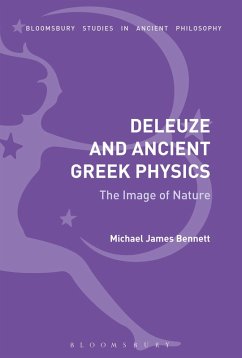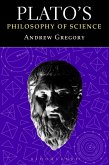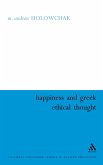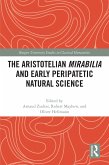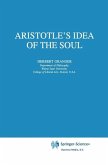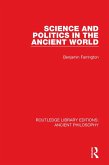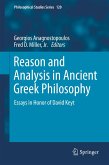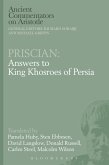In 1988 the philosopher Gilles Deleuze remarked that, throughout his career, he had always been 'circling around' a concept of nature. Providing critical analysis of his highly original readings of Stoicism, Aristotle, and Epicurus, this book shows that it is Deleuze's interpretations of ancient Greek physics that provide the key to understanding his conception of nature.
Using the works of Aristotle, Plato, Chrysippus, and Epicurus, Michael Bennett traces the development of Deleuze's key concepts of event, difference, and problem. Arguing that it is difficult, if not impossible, to fully understand these ideas without an appreciation of Deleuze's Hellenistic influences, Deleuze and Ancient Greek Physics situates his commentaries in the context of contemporary scholarship on ancient Greek philosophy. Delving into the original Greek and Latin texts, this book shows that Deleuze's readings are more complex and controversial than they first appear, simultaneously advancing Deleuze as a new voice in interpretations of ancient Greek philosophy.
Generating both new critical analyses of Deleuze and a new appreciation for his classical erudition, Deleuze and Ancient Greek Physics will be a valuable resource for anyone interested in ancient Greek philosophy, Deleuze's philosophical project or his unique methodology in the history of philosophy.
Using the works of Aristotle, Plato, Chrysippus, and Epicurus, Michael Bennett traces the development of Deleuze's key concepts of event, difference, and problem. Arguing that it is difficult, if not impossible, to fully understand these ideas without an appreciation of Deleuze's Hellenistic influences, Deleuze and Ancient Greek Physics situates his commentaries in the context of contemporary scholarship on ancient Greek philosophy. Delving into the original Greek and Latin texts, this book shows that Deleuze's readings are more complex and controversial than they first appear, simultaneously advancing Deleuze as a new voice in interpretations of ancient Greek philosophy.
Generating both new critical analyses of Deleuze and a new appreciation for his classical erudition, Deleuze and Ancient Greek Physics will be a valuable resource for anyone interested in ancient Greek philosophy, Deleuze's philosophical project or his unique methodology in the history of philosophy.

